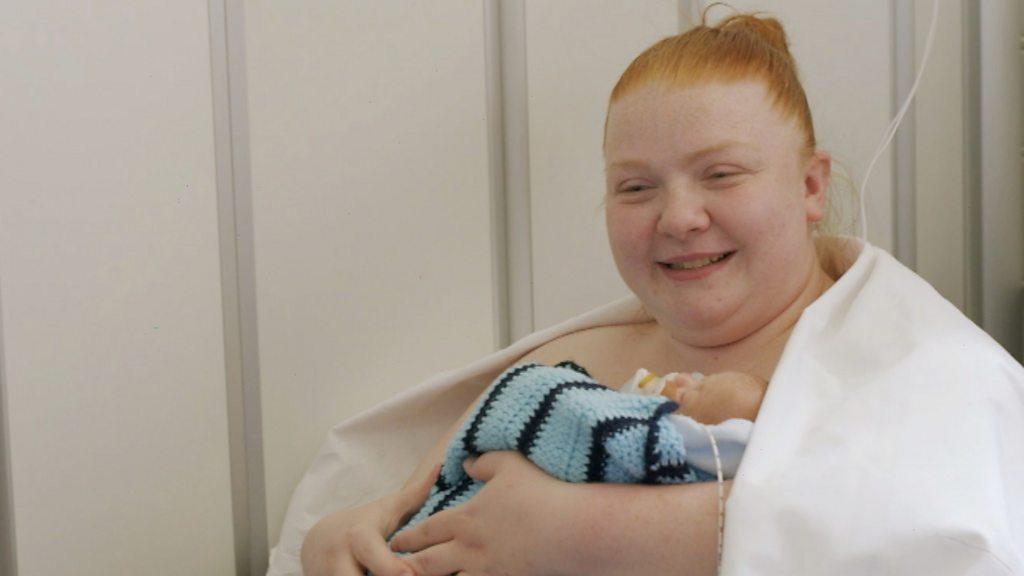Coronavirus: Wolverhampton sees rise in pregnant patients
- Published
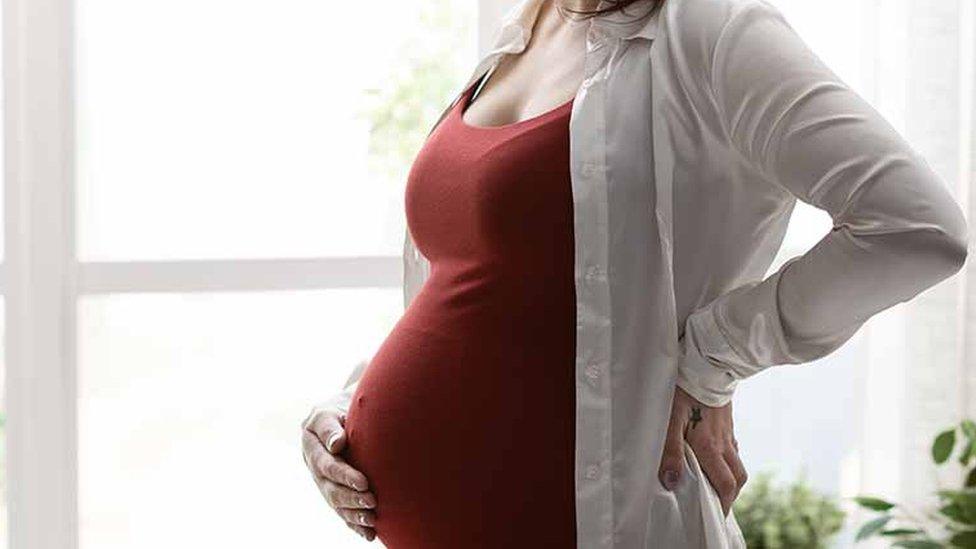
The overall number of pregnant women needing treatment still remains low, experts said
A hospital has reported a "significant" increase in the number of pregnant women being treated for coronavirus.
New Cross Hospital, in Wolverhampton, said part of its maternity ward had been sectioned off for Covid patients.
Nationally, the number of pregnant women in intensive care has almost doubled since the first wave.
The Royal College of Obstetricians and Gynaecologists said pregnant women were at no greater risk of being infected with Covid than the general public.
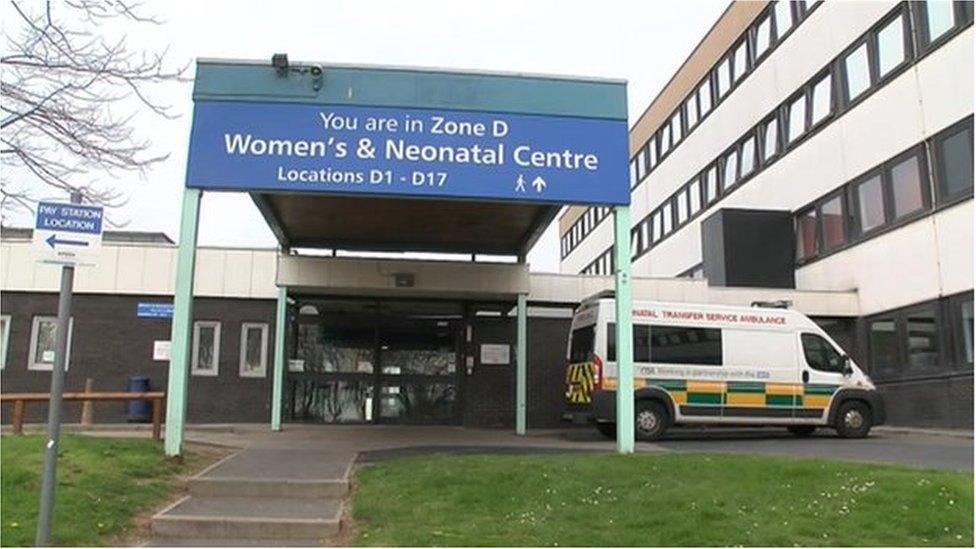
Part of the maternity ward at New Cross Hospital has been partitioned for pregnant Covid patients
The Royal Wolverhampton NHS Trust's chief executive said the cause of the increase in the city was unclear.
"We're seeing a lot more pregnant women now suffering with Covid and some of them have been very, very ill," Prof David Loughton said at a regional coronavirus briefing on Friday.
"We have had some deaths," he continued, "so that is really sad".
A report on intensive care admissions across England, Wales and Northern Ireland, external has shown the number of critically ill pregnant - or recently pregnant - women aged 16-49 with coronavirus more than doubled from September to January compared to the previous six months, from 70 to 198.
But the overall number of patients admitted to critical care also rose over this time.
The most recent figures up to 28 January show pregnant women made up about 1.1% of the total number of Covid-19 critical care admissions since September.
The NHS has said there is no evidence to suggest pregnant women are more likely to get seriously ill from coronavirus.
They have been included in the list of people at "moderate risk" from the virus as a precaution because of increased risk of complications from other viruses such as the flu.
Recently, the intensive care unit in Wolverhampton treated two Covid-positive pregnant patients and almost 200 expectant mothers tested positive in the city during the past quarter.
Perpetual Uke, a rheumatology consultant at Birmingham City Hospital, was admitted to a critical care unit while pregnant with her twins in April.
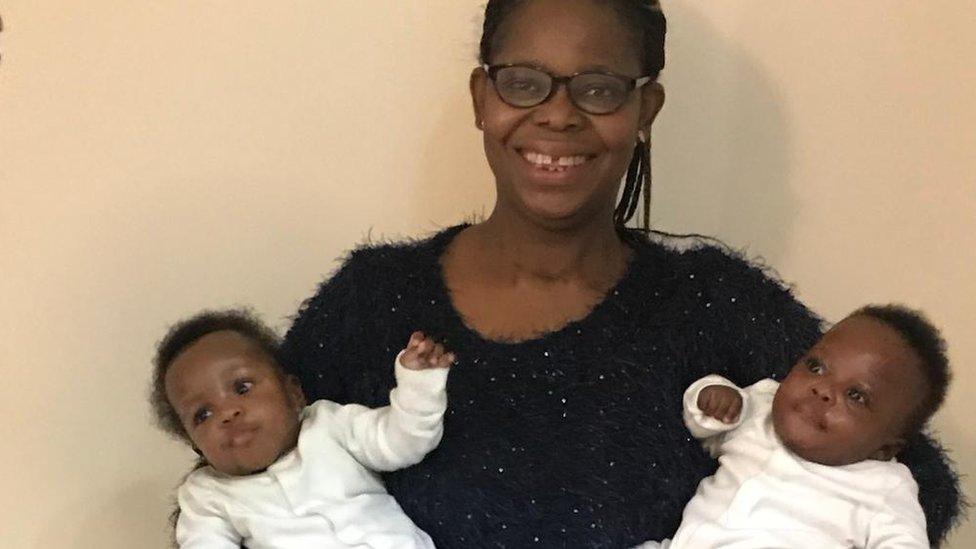
Dr Uke was in an induced coma for 16 days after the birth of her twins
Her babies Sochika Palmer and Osinachi Pascal were delivered by caesarean section at 26 weeks on 10 April while she was in an induced coma.
She believes pregnant women should be shielding.
"At a point, the movement of my kids reduced significantly," Dr Uke said. "If not for swift action taken by the team that was managing me, the children would have been dead.
"The truth is, these women who are pregnant should be prioritised."
The Royal College of Obstetricians and Gynaecologists said the "impact of the increase [in cases] had been magnified" because "overall the number of women needing critical care treatment is low".
"We know there is increased prevalence of the virus among younger age groups in this wave," a spokesperson said.
"Current evidence suggests pregnant women are at no greater risk of being infected with coronavirus than the general public," a spokesperson for the Department of Health and Social Care said.
"As a precautionary measure, and because this is still a new virus where the evidence base is continually growing, pregnant women are classed as 'clinically vulnerable'."

YOUR QUESTIONS: We answer your queries

Follow BBC West Midlands on Facebook, external, Twitter, external and Instagram, external. Send your story ideas to: newsonline.westmidlands@bbc.co.uk , external
Related topics
- Published13 January 2021
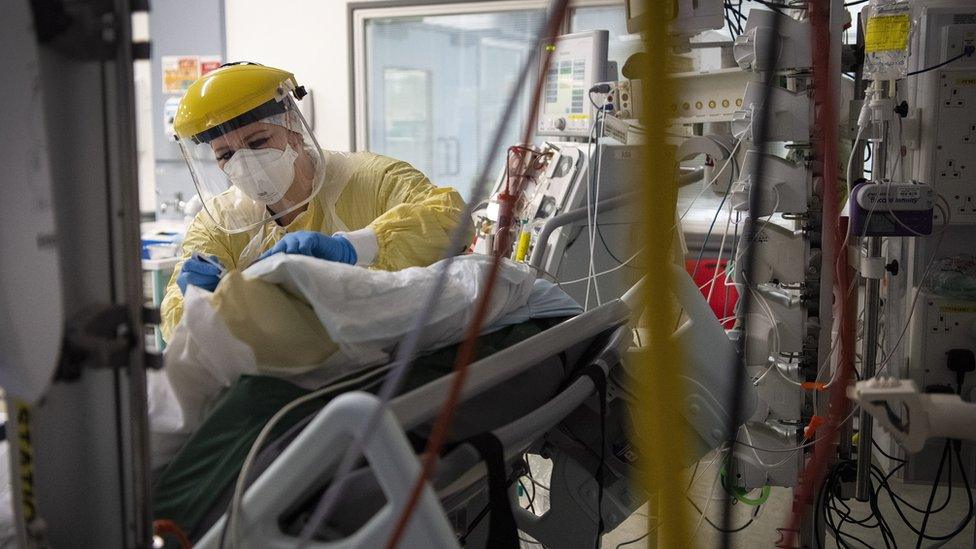
- Published31 December 2020
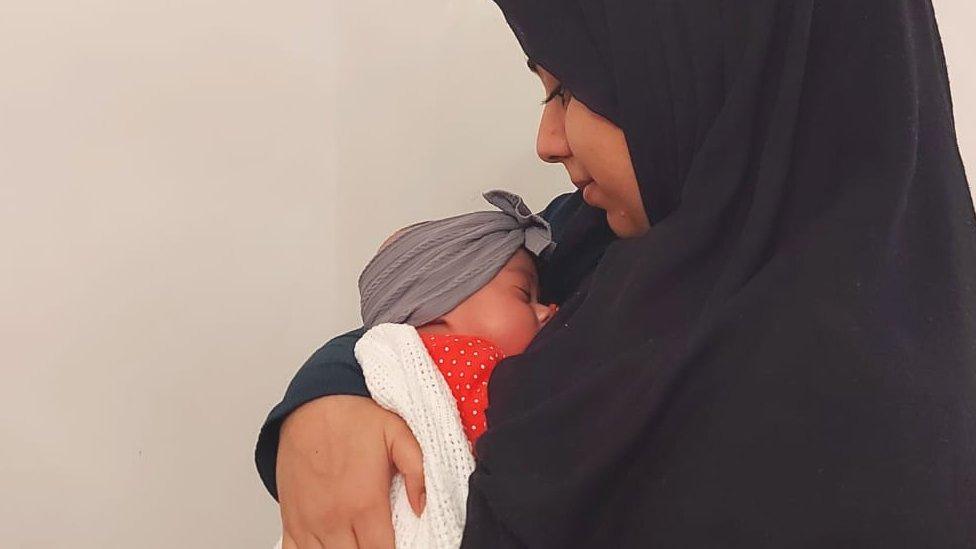
- Published22 December 2020
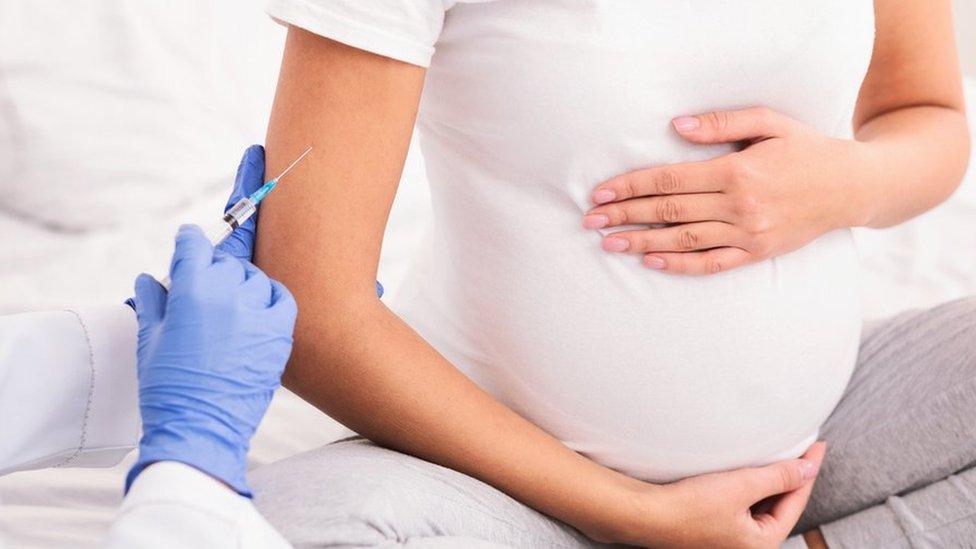
- Published18 November 2020

- Published3 August 2020
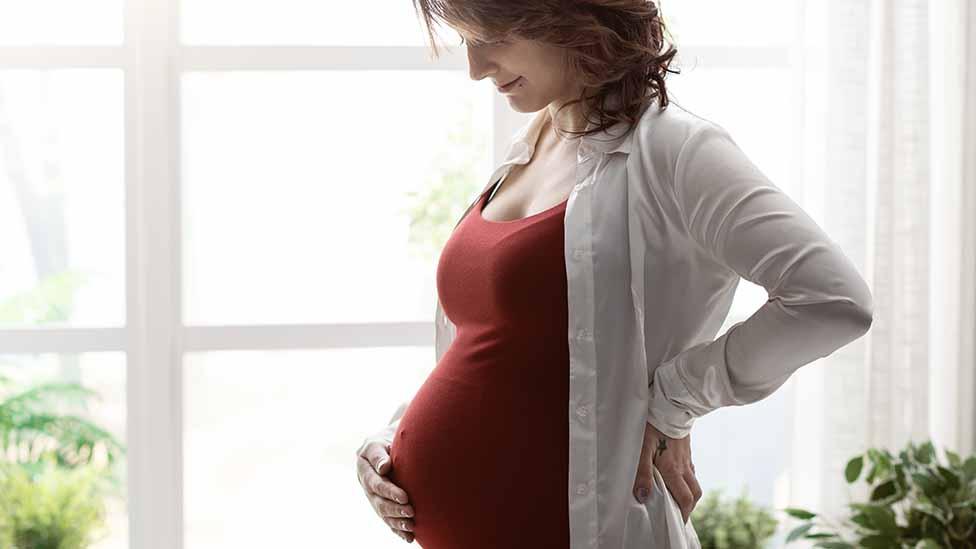
- Published4 August 2020
